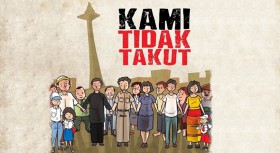My brother just had his second child and it's another girl. Our relative came to see her and some of them joked that it was unfortunate that she was born a girl, instead of a boy. I was appalled by their remarks, but my family took them lightly because they had also expected a boy. But I also can't deny that I had expected a nephew, and feel disgusted with myself.
Women are always number two in my family. My parents favored my brother more; he always gets what he wants and it seems OK for him to spend more money than I. My parents expect me to help with the house chores, while my brother can do whatever he wants. I am in denial that they favor my brother more because it hurts to know aware that your parents can’t love their children equally.
Also read: 'Lamtiur': A Life of Defiance
Our Balinese culture recognizes a caste system, that includes the highest Brahmana, followed by Ksatria, Weisya and, the lowest, Sudra. My uncle has a daughter who married a lower caste person, the first women in our big family to have done so, and it has caused a big shame to our family. Our big family accused my uncle and his wife for spoiling their daughter and grandchildren. It’s not appropriate, they say, instead my uncle should shift his support to one of his nephews so that when he passed away, the nephew would take care of his corpse.
My parents also wants me to marry a man from the same caste or higher, though my brother, as the son, can marry whoever he wants.
People around the world are amazed by Balinese culture, but rarely do they talk about the deeply rooted patriarchy that runs its society: how a family with daughters only is seen as incomplete, and can only be completed with a son, which cause many families to have many children in their efforts to give birth to a son. How women are treated as number two in their families and communities. How some religious rituals can only be performed by the sons in the family.
Also read: My Patriarchal Extended Family and Why I Dread Spending Holidays with Them
I’m not saying my experience represents all Balinese, but I do know that differents parts of Bali are more conservative than others, especially in small villages. Some part of Bali also accept the practice of Nyentana in which a man marries into a woman’s family, and reverse their position in the family. But it's not easy to find a man willing to practice Nyentana.
The pressure as a daughter sometimes suffocates me. Sometimes I wish I hadn’t been born into a conservative Balinese family. I am proud of my family and my culture, but I do wish that some parts of the culture would die out, so my two nieces won’t feel what I feel now.



.jpg)



Comments